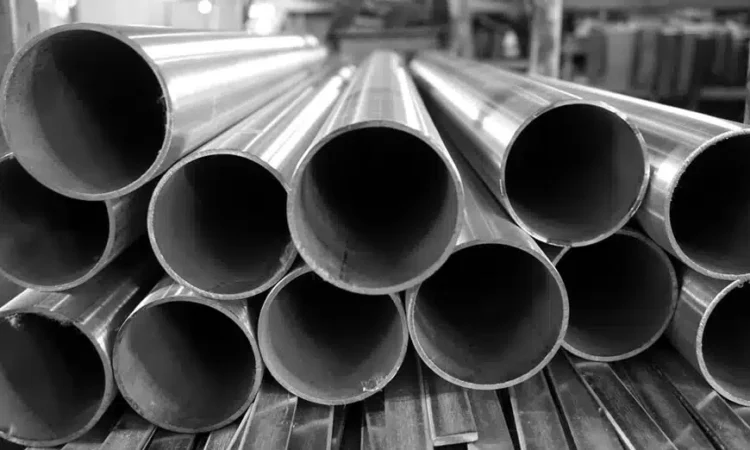
Steel pipes are the backbone of modern industrial infrastructure. From oil refineries and chemical plants to construction and manufacturing, these pipes are trusted for their strength, durability, and versatility. But not all steel pipes are created equal—each type serves a specific purpose depending on the material, environment, and load demands.
Understanding the different types of steel pipes used in industry can help engineers, contractors, and procurement teams make the right decisions for performance and safety.
1. Seamless Steel Pipes
Seamless steel pipes are made without any welded joints, offering uniform strength throughout the pipe body. They’re manufactured by piercing a solid billet and stretching it into a hollow tube. This makes them ideal for high-pressure applications, such as:
- Oil and gas pipelines
- Boiler tubes
- Hydraulic cylinders
- Power plants
Because they don’t have a welded seam, seamless pipes are more resistant to pressure and corrosion. They’re often used where reliability under stress is critical.
2. Welded Steel Pipes
Welded steel pipes are created by rolling a steel strip or plate into a cylindrical shape and welding the seam longitudinally. These are typically used in applications where internal pressure is lower, such as:
- Structural support in buildings
- Water transportation
- HVAC systems
- Automotive components
Welded pipes are more cost-effective than seamless ones and can be manufactured in larger diameters, making them suitable for structural and low-pressure industrial use.
Types of Welded Pipes:
- ERW (Electric Resistance Welded): Common in low- to medium-pressure systems
- LSAW (Longitudinal Submerged Arc Welded): Used in long-distance pipelines
- Spiral Welded: Often used in water and sewage systems
3. Galvanized Steel Pipes
Galvanized pipes are coated with a protective layer of zinc to prevent corrosion. They are widely used in outdoor and exposed environments, including:
- Fencing and handrails
- Sprinkler systems
- Industrial ventilation
- Outdoor construction
While durable, galvanized pipes are not typically used in modern plumbing due to issues with mineral buildup and corrosion over time in water applications.
4. Alloy Steel Pipes
Alloy steel pipes are made by adding elements like chromium, nickel, and molybdenum to enhance strength, heat resistance, and corrosion resistance. These are widely used in:
- Power generation plants
- High-temperature furnaces
- Petrochemical facilities
- Refineries
The added alloying elements allow the pipes to perform in extreme conditions, making them essential for heavy-duty industrial applications.
5. Stainless Steel Pipes
Stainless steel pipes are highly resistant to rust, chemical damage, and heat. They are chosen for industries where sanitation and corrosion resistance are crucial, such as:
- Food and beverage processing
- Pharmaceuticals
- Marine applications
- Cleanroom facilities
Stainless steel comes in various grades, including 304 and 316, each offering different levels of corrosion resistance and strength.
6. Structural Steel Pipes
These are primarily used for structural support rather than fluid transport. Square, round, and rectangular shapes are common in construction, signage, towers, and frames.
In the middle of the industrial pipe supply chain, companies like Stealth tuyau en acier provide tailored steel pipe solutions to meet the exact needs of high-performance sectors, combining precision, durability, and modern engineering practices.
Conclusion
From seamless to galvanized, and from alloy to structural types, steel pipes are integral to nearly every industrial sector. Choosing the right type depends on factors such as pressure tolerance, corrosion resistance, size, and cost. With trusted suppliers and proper specifications, steel pipes will continue to serve as the foundation for safe and efficient industrial operations.



